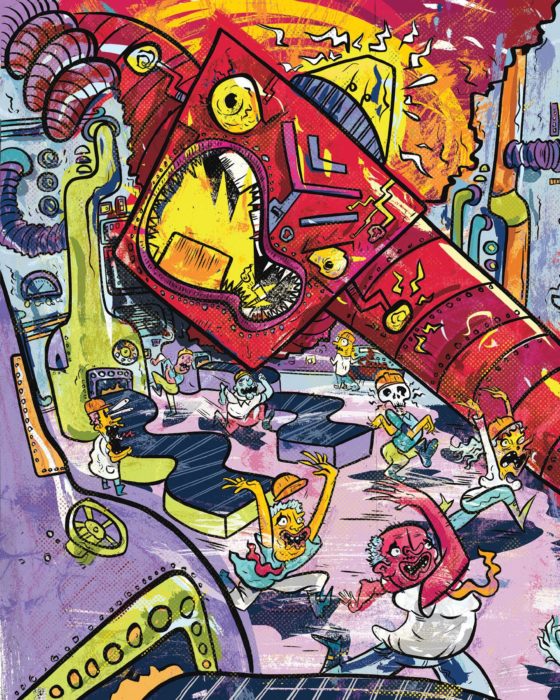Robots are rapidly taking over basic and advanced tasks performed by doctors, lawyers, engineers, educators, journalists, artists, musicians, IT professionals and even investment bankers. And they are doing it with an efficiency, reliability and, above all, profitability that cannot be matched by flesh-and-blood workers. The world economic forum estimates a net loss of over 5 million jobs in 15 major developed countries by the year 2020. Other studies estimate that by 2050 approximately one-half of all present jobs, blue- and white-collar, could be taken over by artificial intelligence (AI).
A capitalist’s dream, robots are incredibly cheap compared to a human workforce. The iron law of our new global market is this: Go with the absolute cheapest labor, wherever or whatever it is. The economic salvation Trump promised—reshoring businesses and limiting immigration—will do nothing for the idled and lost in our decaying Rust Belt. American corporations are coming back home, but increasingly they’re employing robots, not humans. The one-percent who own and manage the corporations will rake in even greater fortunes, while your cousin in Pittsburgh remains unemployed.
Robots are perfect employees: They never show up late for work. They don’t join unions and go on strike. They don’t take bathroom breaks, lunch breaks, sick days or maternity leave. They don’t need health insurance or weekends off. They don’t gossip around the water cooler or fuck the secretary in the closet, and they always obey the boss. Plus, they can work overtime nonstop.
We’re all familiar with Windows, Mac OS and Unix, the operating systems that power our computers and the web. Meet the new kid on the block, ROS (Robot Operating System), now controlling an explosion of new products being developed in Silicon Valley: robotic systems that completely automate precision manufacturing, store and transport goods in warehouses, operate heavy equipment in mining and agriculture, help construct buildings and bridges, and generally do all the remaining heavy lifting that humans still do today. Meanwhile AI is already doing much of the heavy mental lifting performed by professionals.
SERVICE SECTOR
Let’s start on the bottom rung of the employment ladder. Three of the lowest-paying jobs in America are about to disappear: warehouse worker, cashier and burger-flipper. McDonald’s and Wendy’s are installing self-service kiosks in their restaurants to counteract minimum-wage hikes in many cities. A new San Francisco company, Momentum Machines, Inc., is gearing up to fully automate the production of gourmet hamburgers. Continuing its quest for total world domination, Amazon’s new Go retail store will allow shoppers to pick sensored items off shelves and head straight to the parking lot—no tiresome checkout lanes. Your whole grocery list will be billed wirelessly to your Amazon account. A friendly R2-D2 may help you load sacks in the trunk.
AGRICULTURE
You might think that if things get really bad job-prospect-wise, you could at least survive by becoming a migrant farmworker. Forget it, amigo. Harvest Automation, a Massachusetts-based robotic company, estimates that its robots will be able to perform 40% of the manual agricultural labor now required in France and Europe within the foreseeable future. The Australian Centre for Field Robotics envisions robots in the fields, monitoring soil samples and injecting the ideal amount of fertilizer, water and insecticide for each plant, reducing irrigation loss and chemical runoff. Lo siento, José, no tenemos trabajo.































